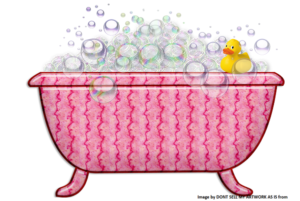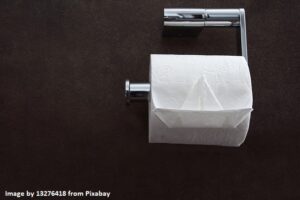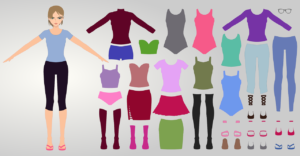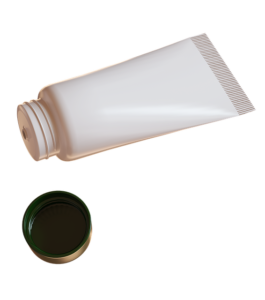 The female external genitalia area (also called the vulval area) is particularly susceptible to skin disorders since this area is warm, sweaty, and moist. The wearing of undergarments in this type of condition can predispose the area to constant irritations and possible infections. Many types of irritants can aggravate the skin such as vaginal and menstrual discharge, use of sanitary pads or panty liner, synthetic undergarments, and vaginal lubricants. Chemicals used in the manufacturing of the undergarments, sanitary pads, and panty liners may act as irritants and sensitizing allergens. In postmenopausal women, lack of oestrogen can cause atrophy of the skin, with gradual loss of subcutaneous fat and skin elasticity. The labia fold (external skin fold at the side) will also shrink in size. This thinning of the skin will predispose to irritation and may lead to various skin disorders.
The female external genitalia area (also called the vulval area) is particularly susceptible to skin disorders since this area is warm, sweaty, and moist. The wearing of undergarments in this type of condition can predispose the area to constant irritations and possible infections. Many types of irritants can aggravate the skin such as vaginal and menstrual discharge, use of sanitary pads or panty liner, synthetic undergarments, and vaginal lubricants. Chemicals used in the manufacturing of the undergarments, sanitary pads, and panty liners may act as irritants and sensitizing allergens. In postmenopausal women, lack of oestrogen can cause atrophy of the skin, with gradual loss of subcutaneous fat and skin elasticity. The labia fold (external skin fold at the side) will also shrink in size. This thinning of the skin will predispose to irritation and may lead to various skin disorders.
It is best not to do self-treatment until you have sought a doctor advice. Studies have shown that as many as two-thirds of all non-prescription drugs sold to treat vulvovaginal candidiasis were used by women without the infection. If you have significant symptoms such as itch, pain, or irritation (with or without vaginal discharge), it is best to seek medical advice. It is important to rule out infections or other sinister skin disorders involving the external genitalia area before you self-medicate.
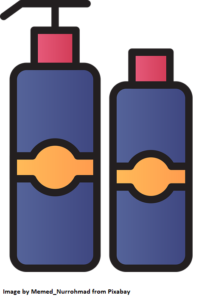 There are many feminine hygiene products in the market and these are quite popular among women. These are being promoted as ideal solutions for cleaning the vulvar area. However, some of these products may in fact cause irritations and make the symptoms worse.
There are many feminine hygiene products in the market and these are quite popular among women. These are being promoted as ideal solutions for cleaning the vulvar area. However, some of these products may in fact cause irritations and make the symptoms worse.
If you have significant vulval symptoms, you may want to follow some tips discussed below. The initial step in the treatment is the same, irrespective of the cause of the symptoms (such as infections, drug reactions, chemical exposure, skin diseases). The causative factor should be identified and eliminated. This will hopefully reduce or even eliminate the symptoms, especially the irritating itch. Continuous itching if unchecked it will lead to worsening and skin complications. Generally, there is a tendency to overtreat with over-the-counter products (creams, lotions, and ointments) from the pharmacy. The use of these products can in fact cause more irritations if not prescribed appropriately.
Vulval hygiene advice:
- Find and eliminate any source of potential irritant such as soap, bubble bath, scented oils.

- If the prescribed topical medications cause a burning sensation, stop using them and seek medical advice.
- The area should be gently patted dry with soft linen or cotton if wet or after shower. Avoid using washcloths or sponge to clean the area. Washing with the hand is better and gentler. To clean the area, you can try using a dermatologically approved liquid emollient-based soap substitute. There are many in the market and choose one that suits you.
- Promptly remove wet bathing suits or exercise clothes. Prolonged wearing can irritate the skin.

- Baby or personal wipes, douches, sprays, perfumes, or other feminine hygiene products may cause irritation or allergic reaction. If you need to wipe the area, use clean and unscented soft toilet paper. Always wipe from front to back in one downward stroke after using the toilet. You should not repeat by wiping from back up to the front again as this can transfer the bacteria from the anus to the opening of your bladder and vagina. This will predispose to infection. If you need to repeat, use a new toilet paper, and repeat from front to back in one stroke only.
- Shaving, use of epilator or waxing can also cause skin redness and irritation and make the area more susceptible to infections in some women.
- Urinary leakage (incontinence) can cause vulval skin irritation and excoriations. Daily wearing of pad or diaper, for this reason, can aggravate the condition. If you have incontinence, you should see your gynaecologist for proper diagnosis and treatment.
- Cotton underwear is more suited to the vulvar area. Wearing tight girdles or jeans can make it worse. Pantyhose also can increase moisture and heat, thus aggravating the symptoms. If you need to wear it, use a knee-high or thigh-high hose.
- Use unscented panty liners or pads. For some women, the use of tampons may be less irritating than sanitary pads during menses.

- It is often difficult to ascertain whether the detergent that you are using is contributing to your symptoms. However, there is no harm to change to another brand that is milder and should avoid the use of bleach or liquid fabric softeners in this situation.
- It is recommended that you should not wear underwear when you sleep. Often, we sweat when we are sleeping and the external genitalia area tends to be moist during this time. Wearing underwear will trap heat and moisture, which can lead to skin irritation or aggravate pre-existing conditions.

- Petroleum jelly can be used as a moisturizer if you feel that the area is dry or uncomfortable. It can help to relieve discomfort during menses when you are wearing sanitary pads. The layer of petroleum jelly can help protect the skin from menstrual blood and pad irritation.
- Consider delay in sexual acts until symptoms cease or reduce significantly. Women with vulval symptoms tend to experience more vulval and vagina dryness. Try using a lubricant if this is a problem for you. A water-based non-scented lubricant is the safest bet and probably less likely to cause problems. Be aware that sometimes spermicides or latex condoms can be an irritant.
To print a pdf copy, click HERE
[mailerlite_form form_id=3]

